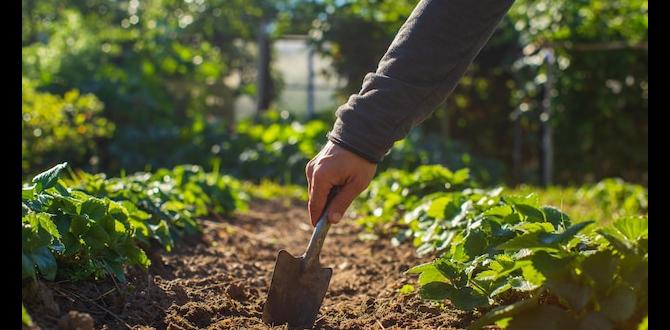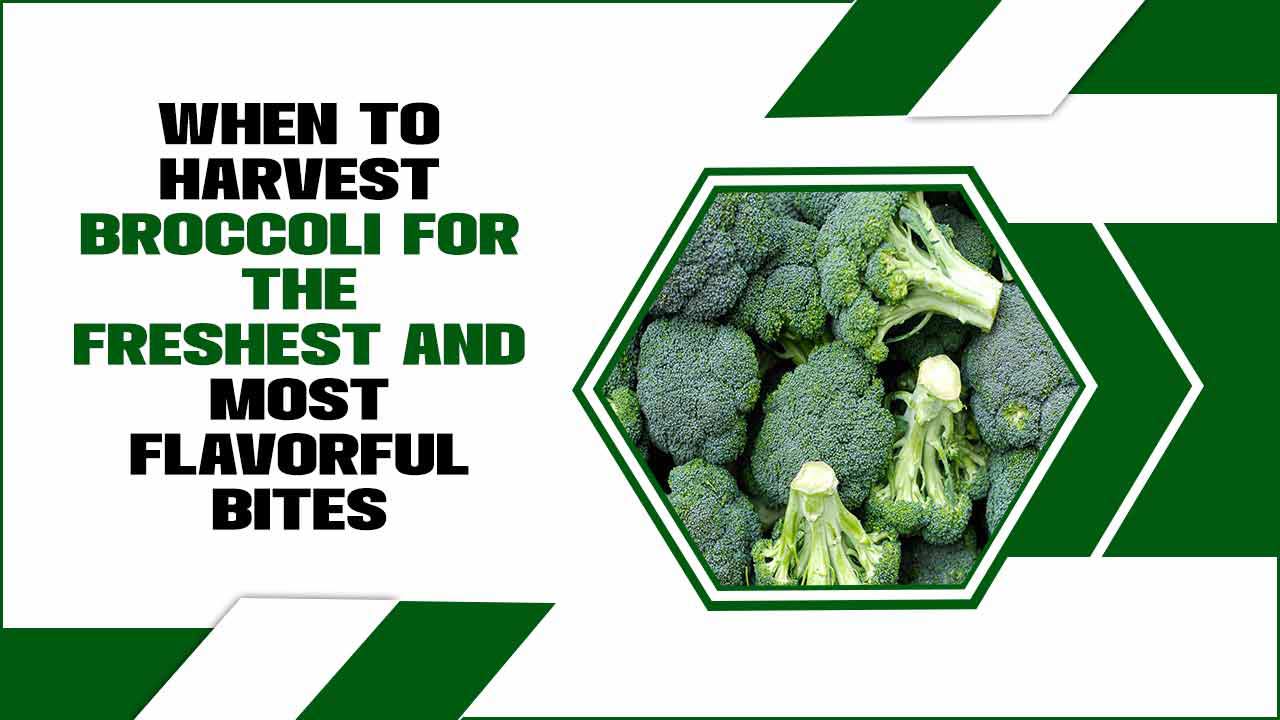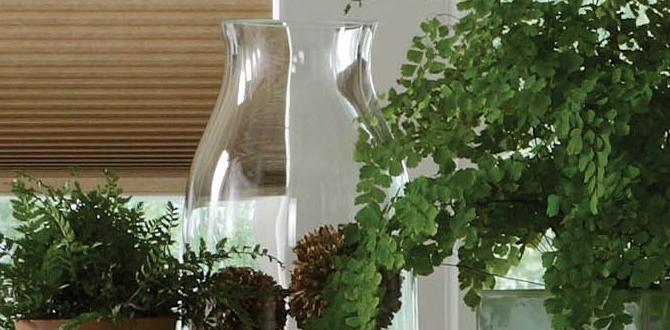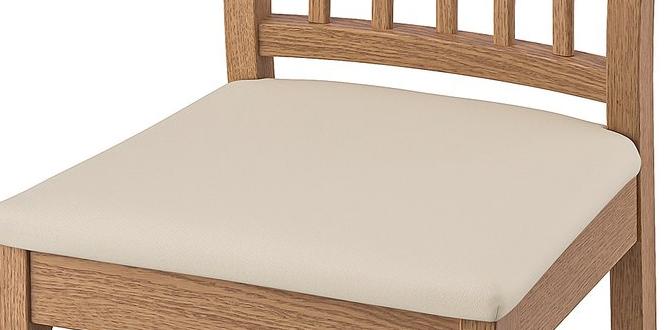Have you ever wandered through a garden and noticed mushrooms popping up from the soil? Many people wonder, “Are mushrooms good for gardens?” These little fungi can be quite amazing. They do more than just look interesting.
Mushrooms might seem like a nuisance, but they play a crucial role in nature. Imagine a world where mushrooms help plants grow stronger and healthier. That’s right! Mushrooms work in secret, breaking down old leaves and turning them into food for plants.
Here’s a fun fact: not all mushrooms are bad! Some actually help keep plants safe from pests. If you care for your garden, you might want to learn more about how these fungi can help. Let’s dive into the world of mushrooms and discover their benefits. You might find that they have a much bigger role in your garden than you ever realized!
Are Mushrooms Good For Gardens? Exploring Benefits And Uses
Are Mushrooms Good for Gardens?
Mushrooms can be great for gardens! They help break down organic matter, turning it into rich soil. This boosts plant growth and health. Plus, some mushrooms work with plants to help them absorb nutrients better. Did you know that certain mushrooms can fight off pests? They are not just fun to find; they can be powerful allies in your garden. Using mushrooms wisely can nurture your plants and create a vibrant ecosystem.Benefits of Mushrooms in Gardens
Enhancing soil health and fertility. Improving moisture retention.Mushrooms are like little superheroes for your garden. They work hard to keep the soil healthy. When mushrooms break down old plants and leaves, they create rich nutrients. This helps the soil get stronger and more fertile. Plus, mushrooms are great at holding moisture. They can keep the soil damp, like a sponge! Your plants will love this, as they need water to grow. So, adding mushrooms to your garden can be a smart move!
| Benefit | How it Helps |
|---|---|
| Soil Health | Creates nutrients by breaking down organic matter. |
| Moisture Retention | Holds water like a sponge, keeping plants hydrated. |
Types of Mushrooms Suitable for Gardening
Edible mushrooms for home gardens. Fungal allies for plant growth.Mushrooms can be amazing helpers for your garden. Some are even tasty to eat! Here are some types to consider:
- Shiitake: Great for adding flavor to dishes.
- Oyster: Fast-growing and good for cooking.
- Lion’s Mane: Unique taste and good for health.
Besides these, mushrooms work like friends for plants. They help to break down soil, making nutrients easier to reach. They can improve plant growth and health. So, they play a double role—edible and beneficial!
Are mushrooms good for plant growth?
Yes, mushrooms help plants grow by enriching soil and providing nutrients.
Mushrooms as Natural Pest Controls
Fungi that deter harmful pests. How mushrooms attract beneficial insects.Mushrooms play a key role in keeping gardens healthy. They help control pests that harm plants. Certain fungi release chemicals that make pests stay away. This protects your flowers and vegetables naturally. Also, mushrooms attract helpful insects. These friends, like ladybugs and lacewings, eat the nasty bugs. Here’s how mushrooms can help:
- Deter harmful pests with special fungi chemicals.
- Attract beneficial insects that feast on unwanted pests.
How do mushrooms help protect gardens?
Mushrooms deter pests and draw in helpful bugs. This balance makes your garden thrive. It’s nature’s way of keeping plants safe!
Mycorrhizal Mushrooms and Plant Symbiosis
The role of mycorrhizal fungi in root health. Benefits of mycorrhizal relationships for nutrient uptake.
Mycorrhizal fungi are like friendly helpers for plants. They connect with plant roots and provide many benefits. This teamwork improves root health and helps plants grow strong. The fungi help plants get nutrients like water and minerals from the soil. Here’s how mycorrhizal relationships benefit plants:
- Improved Nutrient Uptake: Plants absorb more nutrients through these fungi.
- Stronger Roots: Fungi make roots healthier and help plants resist diseases.
In short, mycorrhizal mushrooms are good for gardens. They create a strong relationship that boosts plant growth!
Why are mycorrhizal fungi important for plants?
They help plants absorb nutrients and improve root health.
Cultivating Mushrooms in Your Garden
How to start a mushroom garden. Best practices for growing various mushroom species.
Starting a mushroom garden is easier than you might think! First, choose a shady spot with rich soil. You can use coffee grounds or straw to help them grow. Next, pick your mushroom types. Shiitake, oyster, and button mushrooms are popular choices. They are like the superheroes of the garden! Remember, moisture is key. Keep the area damp but not swimming! Check out the table below for some best practices:
| Mushroom Type | Best Growing Medium | Ideal Temperature |
|---|---|---|
| Shiitake | Hardwood logs | 70-80°F |
| Oyster | Straw or sawdust | 60-75°F |
| Button | Compost | 50-70°F |
With some patience and care, you’ll soon have tasty mushrooms growing. Don’t forget, they can help your garden thrive by adding nutrients to the soil. So, grab your gardening gloves and have fun growing your own fungi!
Challenges and Considerations
Potential risks of mushroom cultivation. Environmental factors to consider.
Mushroom cultivation can be fun, but it does come with some challenges. One big worry is the risk of toxic mushrooms popping up. Some mushrooms are like little ninjas, hiding among the good ones and causing trouble. Also, environmental factors play a role. Do you have enough shade? What about moisture? Too much or too little can lead to a mushroom flop! Keeping these factors in mind will help your garden thrive.
| Potential Risks | Environmental Factors |
|---|---|
| Toxic mushrooms | Moisture levels |
| Pests attracted to mushrooms | Shade availability |
Case Studies: Successful Mushroom Gardens
Examples of thriving garden ecosystems with mushrooms. Lessons learned from experienced gardeners.
Mushrooms can help make gardens thrive. Many gardeners have seen amazing results. They increase soil health and protect plants. For example, some gardens use mushrooms to keep pests away. Here are some lessons learned:
- Mushrooms improve soil by breaking down dead plants.
- They create a home for useful bugs.
- Mixing types of mushrooms can boost garden variety.
Experienced gardeners call mushrooms “nature’s recycling team.” They show us that mushrooms are key in successful garden ecosystems!
Are mushrooms good for gardens?
Yes, mushrooms help gardens by improving soil health and attracting helpful insects.
Conclusion
In conclusion, mushrooms can be great for gardens. They break down organic matter and enrich the soil. You can grow your own mushrooms for food, too! By adding them to your garden, you help plants thrive. If you’re curious, try researching different mushroom types or start a small mushroom garden. You’ll discover more about these fascinating fungi!FAQs
How Do Mushrooms Benefit Soil Health In A Garden Environment?Mushrooms help make soil healthy by breaking down dead plants and animals. This gives food to the soil. They also connect with plants and help them drink water and take in nutrients. When we have mushrooms in our garden, the soil gets better for our plants to grow strong and healthy.
Can Certain Types Of Mushrooms Help With Pest Control In Gardens?Yes, some mushrooms can help control pests in gardens. Certain types can attract good bugs that eat bad bugs. They also break down bad stuff in the soil, making it healthier. So, if you have bad insects, using mushrooms might help keep your garden safe and strong!
What Role Do Mycorrhizal Fungi Play In Plant Growth And Development?Mycorrhizal fungi are tiny helpers for plants. They live in the soil and connect with plant roots. This connection helps plants get more water and nutrients like phosphorus. In return, plants share food with the fungi. Together, they make each other stronger and healthier!
Are There Any Risks Associated With Having Mushrooms In A Vegetable Garden?Yes, there are some risks with having mushrooms in your vegetable garden. Some mushrooms can be poisonous and make you sick if you eat them. You might not know which ones are safe or dangerous. It’s best to check with an adult before touching or eating any mushrooms you find. Keeping the garden clean can help prevent mushrooms from growing too.
How Can Gardeners Encourage Beneficial Mushrooms To Thrive In Their Gardens?You can help mushrooms grow in your garden by adding compost and mulch. These materials keep the soil moist and healthy. Planting trees and plants that mushrooms like also helps. Be sure to water your garden regularly, but not too much. Finally, avoid using chemicals, as they can harm mushrooms.
{“@context”:”https://schema.org”,”@type”: “FAQPage”,”mainEntity”:[{“@type”: “Question”,”name”: “How Do Mushrooms Benefit Soil Health In A Garden Environment? “,”acceptedAnswer”: {“@type”: “Answer”,”text”: “Mushrooms help make soil healthy by breaking down dead plants and animals. This gives food to the soil. They also connect with plants and help them drink water and take in nutrients. When we have mushrooms in our garden, the soil gets better for our plants to grow strong and healthy.”}},{“@type”: “Question”,”name”: “Can Certain Types Of Mushrooms Help With Pest Control In Gardens? “,”acceptedAnswer”: {“@type”: “Answer”,”text”: “Yes, some mushrooms can help control pests in gardens. Certain types can attract good bugs that eat bad bugs. They also break down bad stuff in the soil, making it healthier. So, if you have bad insects, using mushrooms might help keep your garden safe and strong!”}},{“@type”: “Question”,”name”: “What Role Do Mycorrhizal Fungi Play In Plant Growth And Development? “,”acceptedAnswer”: {“@type”: “Answer”,”text”: “Mycorrhizal fungi are tiny helpers for plants. They live in the soil and connect with plant roots. This connection helps plants get more water and nutrients like phosphorus. In return, plants share food with the fungi. Together, they make each other stronger and healthier!”}},{“@type”: “Question”,”name”: “Are There Any Risks Associated With Having Mushrooms In A Vegetable Garden? “,”acceptedAnswer”: {“@type”: “Answer”,”text”: “Yes, there are some risks with having mushrooms in your vegetable garden. Some mushrooms can be poisonous and make you sick if you eat them. You might not know which ones are safe or dangerous. It’s best to check with an adult before touching or eating any mushrooms you find. Keeping the garden clean can help prevent mushrooms from growing too.”}},{“@type”: “Question”,”name”: “How Can Gardeners Encourage Beneficial Mushrooms To Thrive In Their Gardens? “,”acceptedAnswer”: {“@type”: “Answer”,”text”: “You can help mushrooms grow in your garden by adding compost and mulch. These materials keep the soil moist and healthy. Planting trees and plants that mushrooms like also helps. Be sure to water your garden regularly, but not too much. Finally, avoid using chemicals, as they can harm mushrooms.”}}]}





